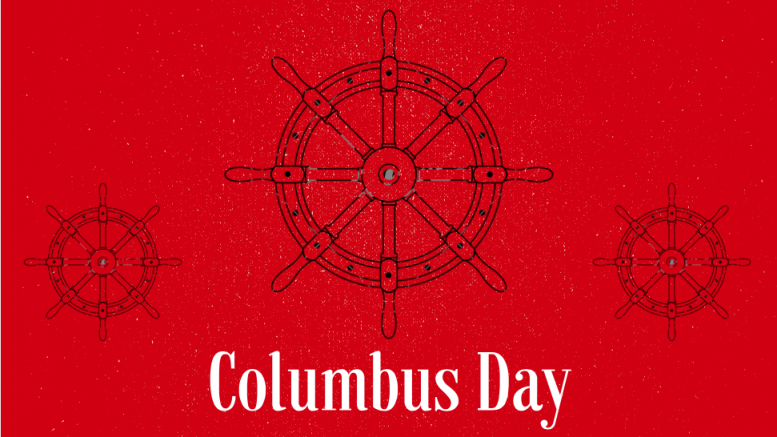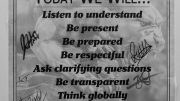Gillian Daley/ Contributing Writer
Monday, Oct. 9 will be Christopher Columbus Day, also known as the historically inaccurate colonial master’s celebration day. In this nation, Christopher Columbus has long been commended despite the fact that he was, in short, a fraud, and generally speaking, a despicable human being.
In primary schools across the country, we are taught the mantra: “In 1492, Columbus sailed the ocean blue.”
We are led to associate Columbus with adventure, glory and fame. But in truth, we’ve edited history.
This assertion is incorrect because it implies that the native peoples already inhabiting the Americas somehow didn’t count as people. The rhetoric also demonstrates that what many schools spread about Columbus being the first European in North America is simply, factually wrong.
That distinction belongs to the Norseman. There’s physical evidence of figures like Erik the Red — who founded the first Norse settlement, Greenland — traveling all across the world.
Physical evidence and Norse sagas recount tales of Erik’s son, Leif Eriksson and his expedition, which is said to have gone from Iceland down into what is now Canada and further down the North American coast, according to History.com.
This fact alone is enough to shake the foundation of any pro-Columbus Day argument. In fact, in 1964, Congress requested that the President Lyndon Johnson reclaim the day from Columbus and proclaim it Leif Eriksson Day.
The United States has taken the lives and times of certain historical figures in order to fit a specific national narrative.
Cherry-picking the actions, accomplishments and beliefs of individuals — who are inherently and irrevocably multifaceted and flawed — isn’t beneficial to anyone.
Not only does it silence the voices of thousands of people who were negatively affected by those figures, but it confuses the idea of what is acceptable behavior from public figures.
“What little restraint he had maintained over his men disappeared,” Bartolomé las Casas, a compatriot of Columbus, said in his personal account. “The troops went wild, stealing, killing, raping, and torturing natives, trying to force them to divulge the whereabouts of the imagined treasure-houses of gold.”
In addition to run-of-the-mill genocide and economic disenfranchisement that is so common among colonialists, Columbus did some seriously depraved things, even for his time. He was a pedophile happily involved in the en masse rape of native girls as young as nine.
“A hundred Castellanoes are as easily obtained for a woman as for a farm…Plenty of dealers who go about looking for girls; those from nine to ten are now in demand,” Columbus said in his own log.
If we teach our children the names of the Santa Maria, the Pinta and the Nina, why do we not teach the names of the First Nations Tribes that were exterminated at his request?
If we commend Columbus’ adventurous spirit, why do they not also denounce the fact that he established Native human trafficking?
This is such an important issue because it’s about accurately representing the truth of the past to set a precedent for the way future generations record history. If we let murderers, rapists, pedophiles and conquerors be remembered as “heroes,” then we open ourselves up to perpetuating the old refrain that victors — not the truth — will determine history.
DISCLAIMER:
The opinions presented within this page do not represent the views of Panther Press Editorial Board. These views are separate from editorials and reflect individual perspectives of contributing writers and/or members of the University community.
Graphic Credit: Maytinee Kramer






Be the first to comment on "The celebration of Columbus Day skews the truth of history"